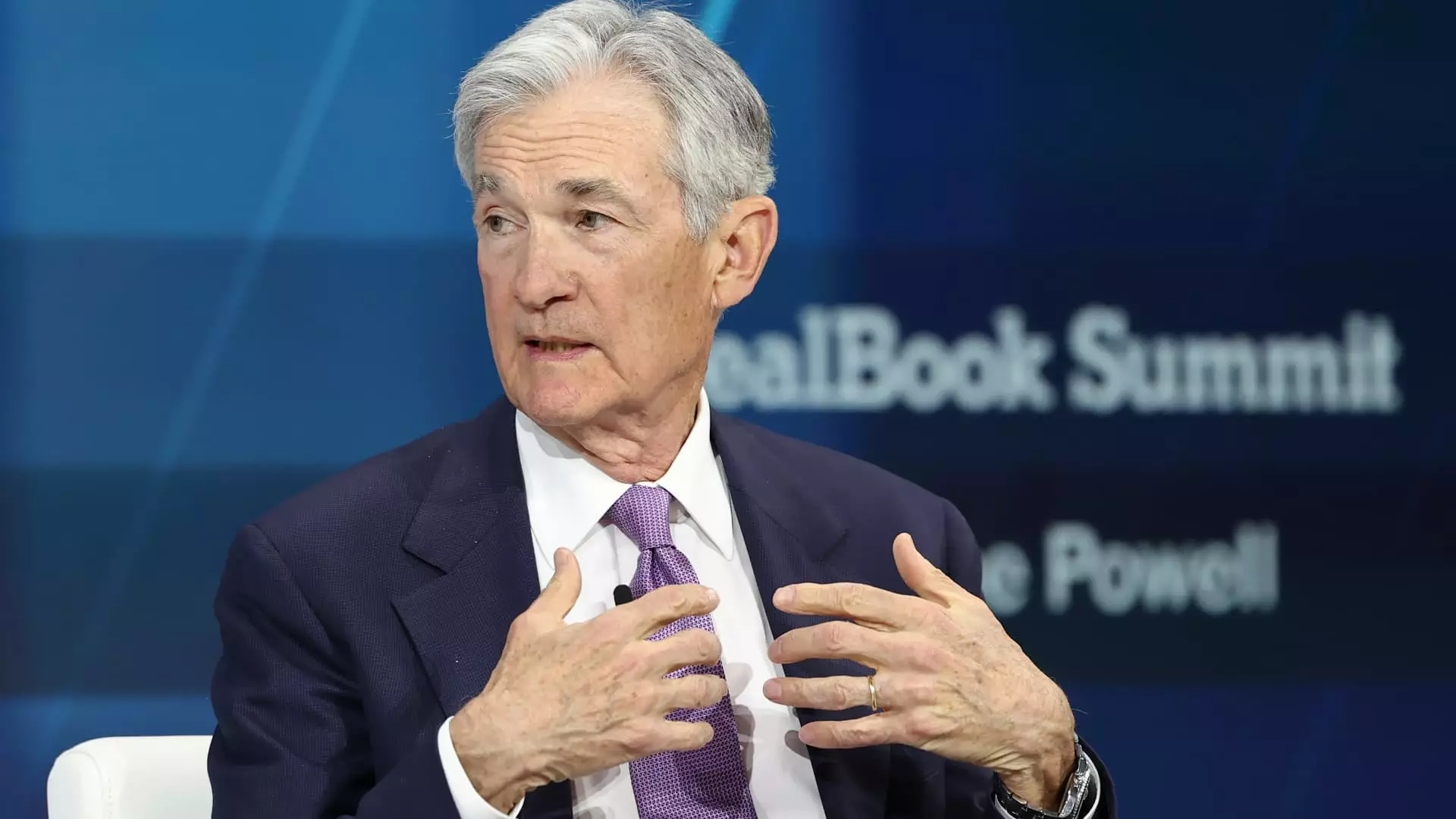As the landscape of finance continues to evolve, Bitcoin remains at the forefront of discussions surrounding cryptocurrencies. Recently, comments from Federal Reserve Chair Jerome Powell created a ripple in the cryptocurrency markets, as they seemed to inadvertently lend a degree of legitimacy to Bitcoin’s position as a significant asset. This article delves into the implications of Powell’s statements, the evolving relationship between Bitcoin and traditional currencies, and the broader context of market dynamics in light of political developments.
During a recent discussion at the New York Times’ DealBook Summit, Powell expressed a restrained view of Bitcoin, categorizing it as a speculative asset rather than a direct competitor to traditional fiat currencies, especially the U.S. dollar. He asserted that Bitcoin functions similarly to gold, acting as a store of value in a speculative sense but lacking the stability and reliability that one seeks from a currency. His remarks clarified that the Federal Reserve does not have a robust regulatory framework for Bitcoin, highlighting that its volatility limits its utility in everyday transactions.
Powell’s assertion illuminates a critical aspect of Bitcoin’s identity in the financial ecosystem. By positioning it alongside gold, Powell acknowledges Bitcoin’s potential as an investment asset rather than a currency. His comparisons may inspire investors to reconsider Bitcoin, potentially increasing its appeal amid the ongoing search for investment opportunities in the face of economic uncertainties.
Following Powell’s remarks, Bitcoin experienced a noticeable uptick, surging over 4% to surpass the $103,000 mark—the latest example of how investor sentiment can be swayed by influential figures. This reaction indicates that the market remains sensitive to cues from key economic leaders, and Powell’s comments acted as a catalyst for renewed investor interest in the cryptocurrency. As market strategist Joel Kruger noted, these comparisons not only lend credibility to Bitcoin but also suggest significant growth potential in a market that still has a long way to catch up to gold.
This spike in Bitcoin’s value exemplifies the volatile nature of cryptocurrencies as speculative assets. Unlike traditional equities, cryptocurrencies can react strongly to rhetorical shifts and perceptions within financial discourse. The relationships between various assets in response to public remarks can create significant trading opportunities, underscoring the intricate dance between investor psychology and market fundamentals.
It is essential to recognize that Bitcoin’s rise isn’t merely a product of Powell’s words. The political landscape has also influenced cryptocurrency markets, notably following the election of Donald Trump and his pro-crypto sentiments. Speculators have responded positively to the anticipated regulatory changes that could both legitimize and foster confidence in the cryptocurrency industry.
The prospect of Paul Atkins, a known advocate for cryptocurrency, being nominated as chair of the Securities and Exchange Commission adds another layer of complexity to the future of digital assets. If appointed, Atkins could signify a more favorable regulatory environment for cryptocurrencies compared to the current SEC leadership under Gary Gensler, who has often advocated for stricter oversight. This potential regulatory shift could create smoother sailing for cryptocurrencies like Bitcoin, further propelling their adoption among institutional and retail investors alike.
Bitcoin’s journey as an asset class is marked by an ongoing interplay of speculation, regulation, and market psychology. Jerome Powell’s comments have not only provided a sense of credibility but have also opened avenues for discussions about the role of cryptocurrencies in the global economic framework. As Bitcoin navigates through volatile waters, the influences of political leaders and regulatory figures will undoubtedly shape its trajectory in the coming years. The convergence of economic commentary and market response signifies a crucial moment for Bitcoin that could redefine its position and open doors for future growth as an alternative investment asset akin to gold.

